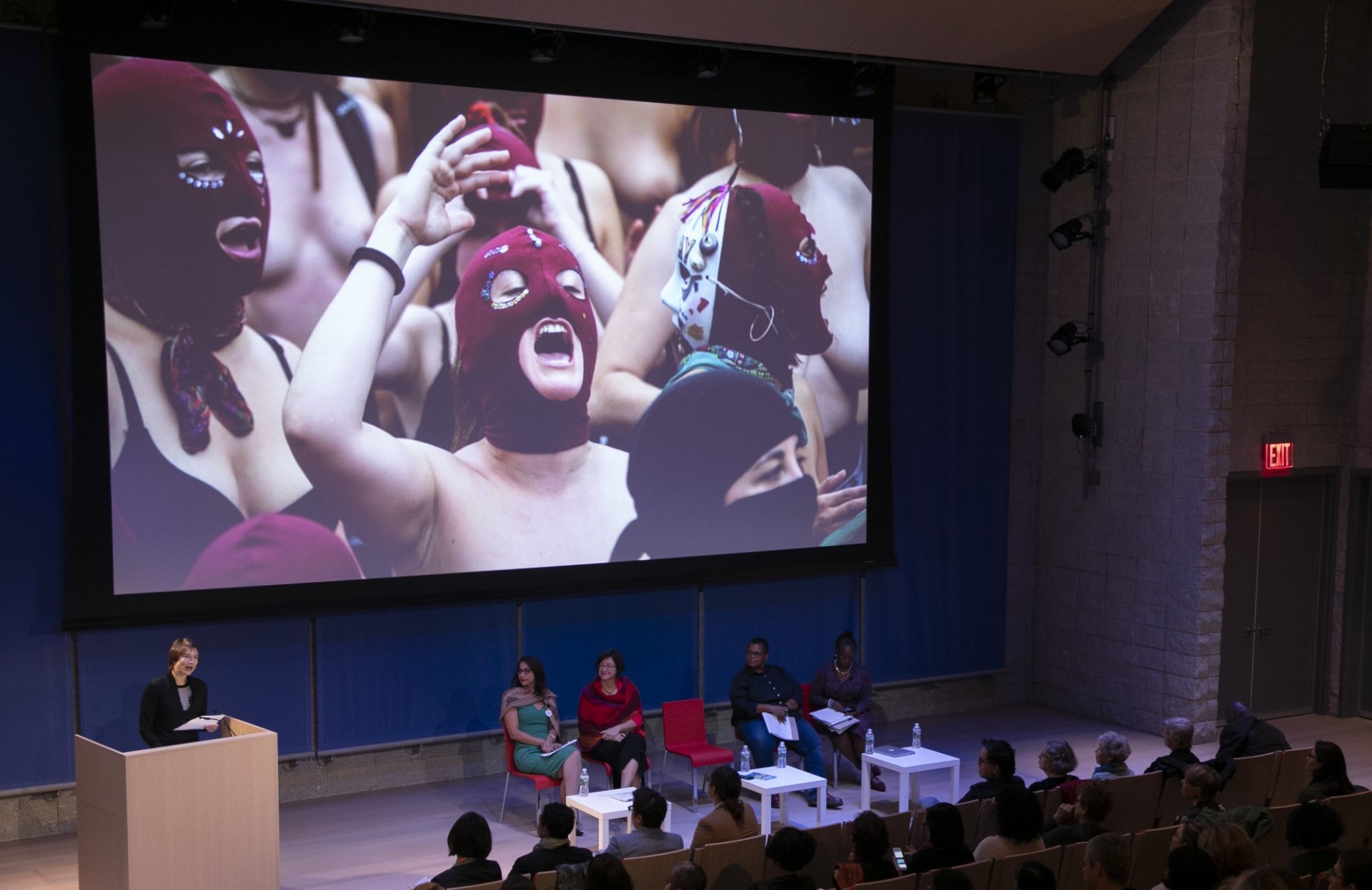In September, María José Contreras, a Chilean performance artist who is an associate professor at Universidad Católica’s School of the Arts as well as a researcher at the Nucleo Milenio Arte, Performatividad y Activismo travelled to New York to participate in the symposium “What We can do When There’s Nothing to be Done” organized by the Center for the Study of Social Difference of Columbia University (CSSD).
The Symposium celebrated the tenth and fifth year anniversaries of the Center for the Study of Social Difference and Women Creating Change project, respectively. Since 2013, Contreras has participated in the Women Mobilizing Memory, a working group of the CSSD that uses gender as an analytic lens to explore women’s acts of witness and testimony as response to socially imposed vulnerability and historical trauma. Women Mobilizes Memory brings together artists, writers, social activists and scholars, and has explored diverse forms of scholarship and artistic creation. In the context of the group’s work, Contreras performed Habeas Corpus in the Palacio de Tribunales at Santiago, in the frame of the Women Mobilizing Memory annual meeting (2013), Nuestra Amensia during the IX Encounter of the Hemispheric of Performance and Politics of the Hemispheric of Performance and Politics in Montreal (2014), and Protesis in the II Workshop held by the group in Istanbul (2014).
Contreras was invited as a speaker in the Symposium along other renowned feminist scholars, activists and artists, such as Judith Butler, Keeanga-Yamahtta Taylor and Ricardo Domínguez.
In her presentation, Contreras discussed the recent upraising of the feminist movements in Chile, characterizing them as a “Feminist tsunami”. She described the context of what has been called the “feminist May” in Chile and then reflected on the political efficacy of feminist embodied methods of activism practiced during some of the massive demonstrations and occupations of universities that have taken place in Chile in the during 2018.

